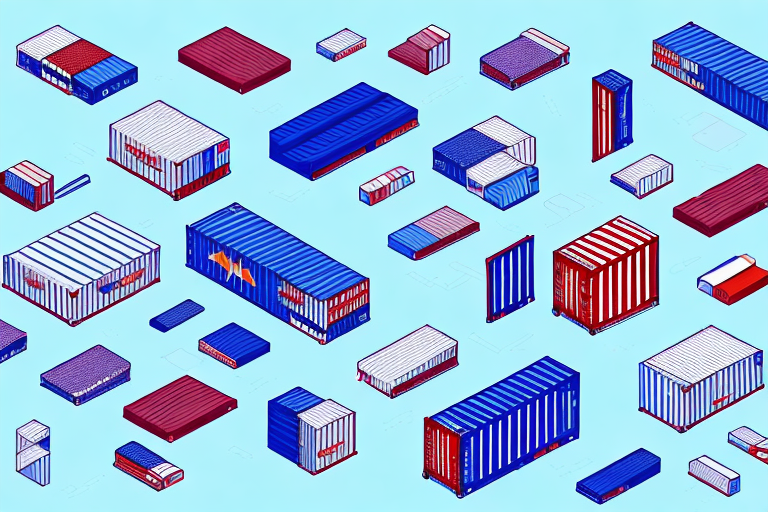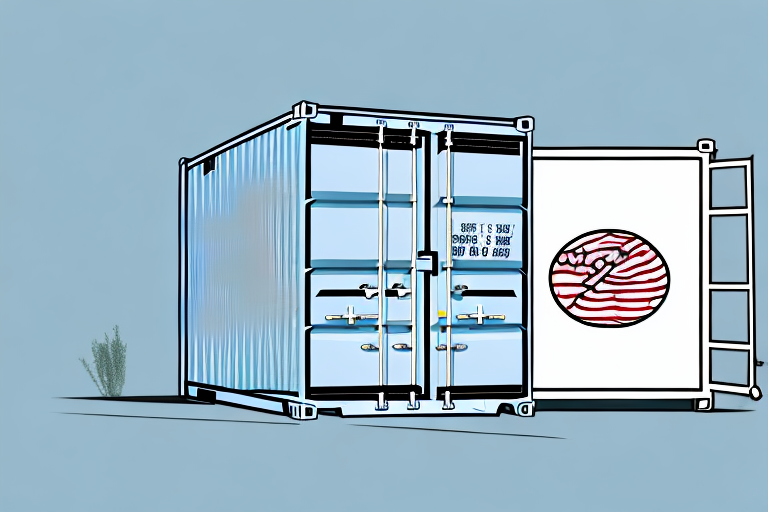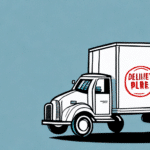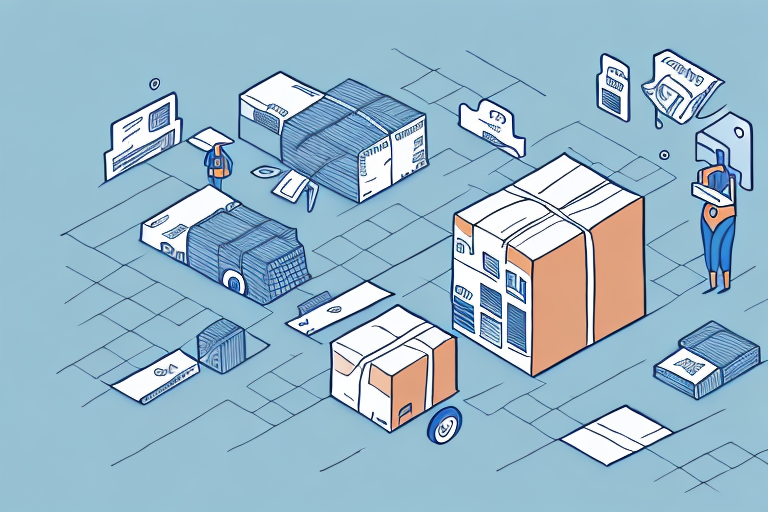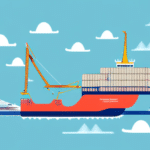Understanding FOB (Free on Board) Shipping Agreements
FOB (Free on Board) is a pivotal shipping agreement in global trade, delineating the responsibilities and liabilities of buyers and sellers during the transportation of goods. Under FOB terms, the supplier handles the loading of goods onto a vessel, while the buyer assumes all costs and risks post-loading. Mastering FOB terms is essential for businesses aiming to optimize their supply chain and mitigate risks associated with international shipping.
What is FOB Source?
FOB source pertains to the strategy of selecting and collaborating with suppliers responsible for loading goods onto transportation vessels. This arrangement offers businesses the advantage of controlling transportation costs and minimizing associated risks. Once the goods are loaded, ownership transfers to the buyer, who then bears all subsequent costs and risks.
- Supplier Responsibilities: Loading goods onto the vessel.
- Buyer Responsibilities: Transportation costs and risks post-loading.
Understanding the nuances of FOB sourcing can significantly impact a company's logistics efficiency and overall profitability.
Advantages of Using FOB Sources for Your Business
Cost Savings
Engaging with FOB suppliers allows businesses to negotiate lower transportation costs, thereby reducing overall expenses. By having control over the transportation process, companies can identify cost-saving opportunities that might otherwise be overlooked.
Enhanced Supply Chain Visibility
Working closely with FOB suppliers provides deeper insights into the supply chain, including production processes and quality control measures. This transparency helps in identifying potential bottlenecks and implementing improvements, leading to more efficient operations.
Global Expansion
FOB sourcing facilitates global business expansion by connecting companies with international suppliers. This access to diverse markets enables businesses to tap into new customer bases and increase revenue streams.
According to the World Trade Organization, international trade agreements like FOB play a crucial role in facilitating global commerce by clearly defining buyer and seller responsibilities.
Types of FOB Sources: A Comprehensive Guide
Seller FOB
Under Seller FOB terms, the seller is responsible for loading goods onto the transportation vessel. This arrangement can reduce the buyer's logistical burden but may limit their control over the loading process.
Buyer FOB
Buyer FOB assigns the responsibility of loading goods to the buyer. This gives the buyer more control over the logistics process but also increases their involvement and potential risks.
Destination FOB
Destination FOB requires the seller to deliver goods to a specified destination. Upon arrival, the buyer assumes all subsequent costs and risks. This type is beneficial for buyers who prefer suppliers to handle initial transportation stages.
FOB Origin
FOB Origin means the buyer takes ownership and responsibility once goods are shipped from the origin point. This is ideal for buyers who have established logistics networks and prefer managing transportation from the start.
Choosing the right FOB type depends on factors such as the nature of the goods, transportation distance, and the desired level of control over the shipping process.
How to Choose the Right Type of FOB Source for Your Business
Assessing Business Needs
Evaluate the volume of goods, acceptable risk levels, and budget constraints to determine the most suitable FOB arrangement. For instance, high-value goods might warrant a Buyer FOB agreement to maintain closer oversight.
Supplier Location
Consider the geographic location of potential suppliers. Proximity can reduce transportation time and costs, and enhance communication efficiency. Local suppliers also enable quicker response times to market demands.
Cost-Benefit Analysis
Conduct a thorough cost-benefit analysis to compare different FOB types. This includes evaluating transportation costs, potential risks, and the logistical capabilities of each FOB option.
Resources like the Investopedia FOB Guide provide detailed explanations and examples to aid in decision-making.
Common Mistakes to Avoid When Working with FOB Sources
Lack of Supplier Research
Failing to thoroughly research and vet suppliers can lead to logistical issues and compromised quality. Always verify a supplier's credentials and track record before entering into an FOB agreement.
Poor Negotiation
Inadequate negotiation can result in unfavorable terms and higher costs. It's essential to negotiate terms that align with your business objectives and mitigate potential risks.
Ignoring Total Costs
Overlooking all associated transportation costs, including customs duties and insurance, can inflate expenses unexpectedly. A comprehensive understanding of all costs ensures accurate budgeting and financial planning.
Insufficient Documentation
Incomplete or unclear contracts can lead to disputes and misunderstandings. Ensure all terms, responsibilities, and expectations are clearly documented in the FOB agreement.
Ensuring Quality Control with FOB Suppliers
Supplier Audits
Regular audits of supplier facilities and processes help maintain high-quality standards. This proactive approach ensures that goods meet the required specifications before shipment.
Pre-Shipment Inspections
Implement pre-shipment inspections to verify the quality and quantity of goods before they are loaded onto the vessel. This minimizes the risk of receiving defective or incomplete shipments.
Compliance with Standards
Ensure that suppliers adhere to relevant industry standards and certifications. Compliance not only guarantees quality but also builds trust and reliability in the supply chain.
Organizations like ISO provide international standards that can be referenced to maintain quality control.
The Role of Freight Forwarders in FOB Shipping
Freight forwarders facilitate FOB shipping by managing the logistics of loading and unloading cargo, handling documentation, and coordinating transportation. Their expertise ensures a seamless shipping process, reducing the complexities associated with international trade.
Key responsibilities of freight forwarders include:
- Managing shipping documentation
- Coordinating with carriers and customs
- Providing cargo insurance
- Handling currency exchanges
Utilizing reputable freight forwarders can enhance the efficiency and reliability of your FOB shipping arrangements.
Legal Aspects of Working with FOB Sources
FOB agreements encompass various legal considerations, including contract terms, liability clauses, and insurance requirements. It's crucial to clearly define each party's responsibilities to prevent disputes and ensure smooth transactions.
Essential legal components of FOB agreements include:
- Terms of Sale: Clearly outline the duties of both buyer and seller.
- Liability: Specify when liability transfers from seller to buyer.
- Insurance: Determine who is responsible for insuring the goods during transit.
Consulting with legal professionals ensures that your FOB contracts are comprehensive and enforceable, protecting your business interests.
The Impact of Technology on FOB Sourcing
Advancements in technology have revolutionized FOB sourcing by enhancing supply chain visibility and efficiency. Tools such as supply chain management software, real-time tracking systems, and automated documentation streamline the shipping process.
Real-Time Tracking
Implementing GPS and IoT technologies allows businesses to monitor the location and condition of goods in real-time, ensuring timely deliveries and reducing the risk of loss or damage.
Automation and AI
Automation tools and artificial intelligence facilitate efficient data management and predictive analytics, enabling businesses to anticipate and address potential supply chain disruptions proactively.
Blockchain for Transparency
Blockchain technology enhances transparency and security in FOB transactions by providing immutable records of each step in the supply chain, reducing the likelihood of fraud and errors.
According to a report by McKinsey & Company, blockchain can significantly improve supply chain transparency and trust, which are critical for effective FOB sourcing.
Future Trends in FOB Sourcing
Sustainability and Green Shipping
There is a growing emphasis on sustainable shipping practices. Businesses are increasingly seeking FOB suppliers who prioritize environmentally friendly methods, such as using low-emission vessels and sustainable packaging materials.
Increased Automation
The adoption of automation in logistics and transportation is set to rise, enhancing efficiency and reducing human error in FOB shipping processes.
Greater Emphasis on Data Analytics
Advanced data analytics will play a crucial role in optimizing supply chains, allowing businesses to make informed decisions based on real-time data and predictive insights.
Integration of Artificial Intelligence
AI will continue to transform FOB sourcing by enabling smarter supply chain management, improving demand forecasting, and enhancing overall operational efficiency.
Case Studies: Successful Businesses Leveraging FOB Sourcing
Apple Inc.
Apple utilizes FOB agreements extensively to manage the logistics of transporting goods from manufacturing hubs in China to global markets. This strategy allows Apple to maintain control over transportation costs and ensure timely delivery of products.
Nike
Nike's reliance on FOB sourcing enables the company to efficiently manage its global supply chain, ensuring consistent product quality and minimizing transportation risks.
Amazon
Amazon leverages FOB agreements to streamline its vast logistics network, facilitating rapid and reliable delivery of products to customers worldwide.
Walmart
Walmart employs FOB sourcing to optimize its supply chain, reducing costs and enhancing the efficiency of its global operations.
These case studies exemplify how major corporations successfully integrate FOB sourcing into their business strategies to achieve operational excellence and competitive advantage.
Conclusion
FOB sourcing is a cornerstone of international trade, offering businesses the flexibility and control necessary to manage their supply chains effectively. By understanding the various types of FOB agreements, leveraging technology, and implementing robust quality control measures, companies can optimize their operations, reduce costs, and mitigate risks. As global trade continues to evolve, staying informed about the latest trends and best practices in FOB sourcing will be essential for sustained business growth and success.













